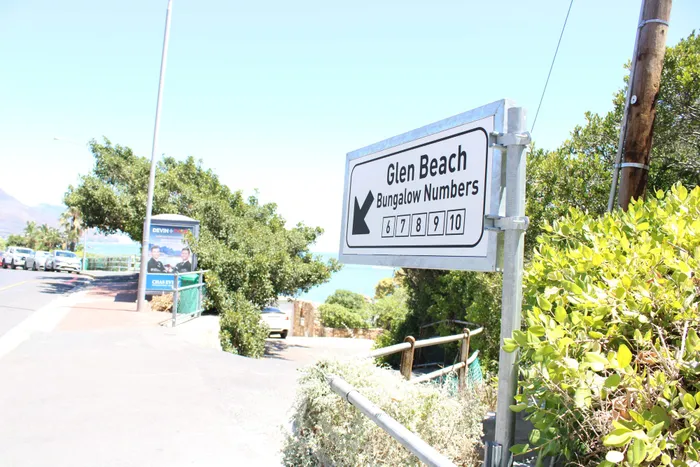Residents propose a CID for Clifton and Glen Beach

Glen beach bungalows could fall under a CID in a year or two.
Residents of Clifton and Glen beach are proposing to have a City Improvement District (CID) established in their area to ensure dedicated public safety management with 24/7 on-call service.
Tshepo Mahloele, chairman of the CID steering committee (CIDSC), said a mandatory user survey conducted among Clifton and Glen Beach residents showed that public safety and public space management were two priorities for the area.
The CIDSC started the process in 2019 and is aiming to have the CID operational by July 1, next year.
“We have done an enormous amount of work in assessing exactly what is required for what is quite a spread-out area. We have large swathes of public space that require better day-to-day management, and public security – both on the ground and virtual – is really crucial,” Mr Mahloele said.
A five-year business plan by the CIDSC was tabled at a public meeting in August last year, but, in terms of legislation, 60% of all property owners must vote in favour of establishing the CID before it can be legally constituted.
“Once this (60%) has been obtained, the steering group has to submit an application to the City. The application is then advertised in the media and property owners are also notified to allow them at least 60 days to render any comments or objections,” said Eddie Andrews, the City’s deputy mayor and mayoral committee member for spatial planning and environment.
“The City then considers the application with the objections at a full sitting of Council. After the City has approved the application, a non-profit company is set up and a board is elected. The NPC has to register for VAT, open a bank account and be registered as a vendor with the City.”
Mr Andrews said the City was legislatively obliged to accommodate communities wanting to establish a CID.
“The process is transparent and inclusive so the entire community is encouraged to get involved while it must be noted some residents may opt not to participate as they may live abroad, or, they are opposed to the proposal or apathetic,” he said.
“Also, the process is subject to a rigorous legislative framework under the oversight and guidance of the City. Should it be established, the CID is subject to all the City’s by-laws and policies, national laws and the Companies Act.”
According to the CIDSC the costs are borne by all CID property owners in proportion to the value of each property.
For a ratepayer with a property with a municpal value of R5 million, the amount payable would be R413.75 a month, while a resident owning a property with a municipal value of R27 million, would pay R2 234.25 a month.
The City’s mayoral committee member for finance, Siseko Mbandezi, said property rates were used to fund services such as cleaning and upkeep of community facilities and public open spaces.
“This pool of funding is utilised across the metropolitan area by the various functional departments and is not area specific. In addition, our operating budget, different to the capital budget, is not structured in such a way that it provides for spending per suburb/area as each directorate operates differently in terms of their operational model,” said Mr Mbandezi.
Chris Willemse, chairman of the Camps Bay and Clifton Ratepayers’ Association (CBCRA) said they supported the CID proposal.
“We are not directly involved in this implementation of the CID, it’s not one of our functions, but we are in support of it and believe it will benefit the community,” said Mr Willemse.